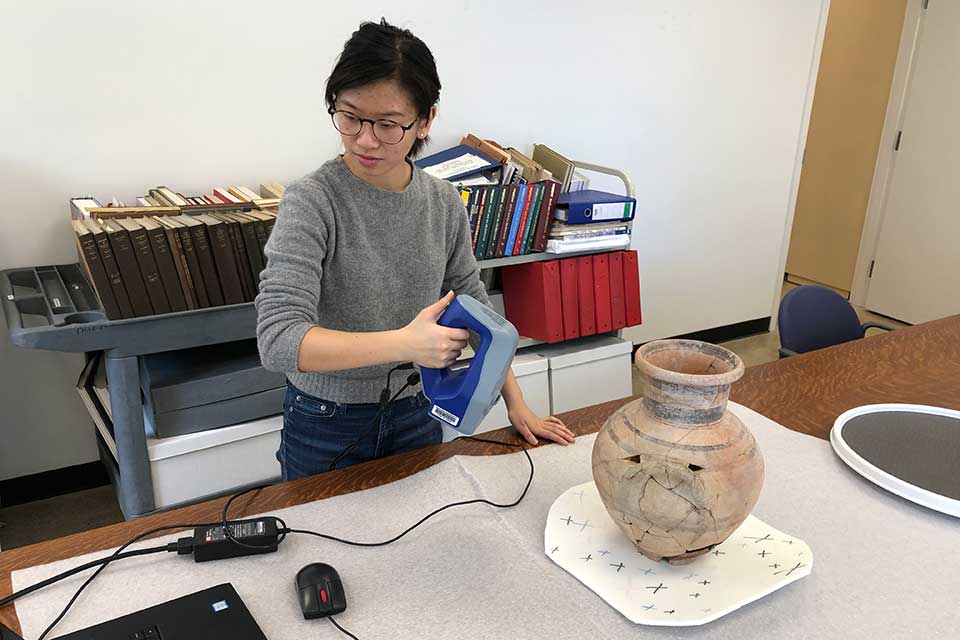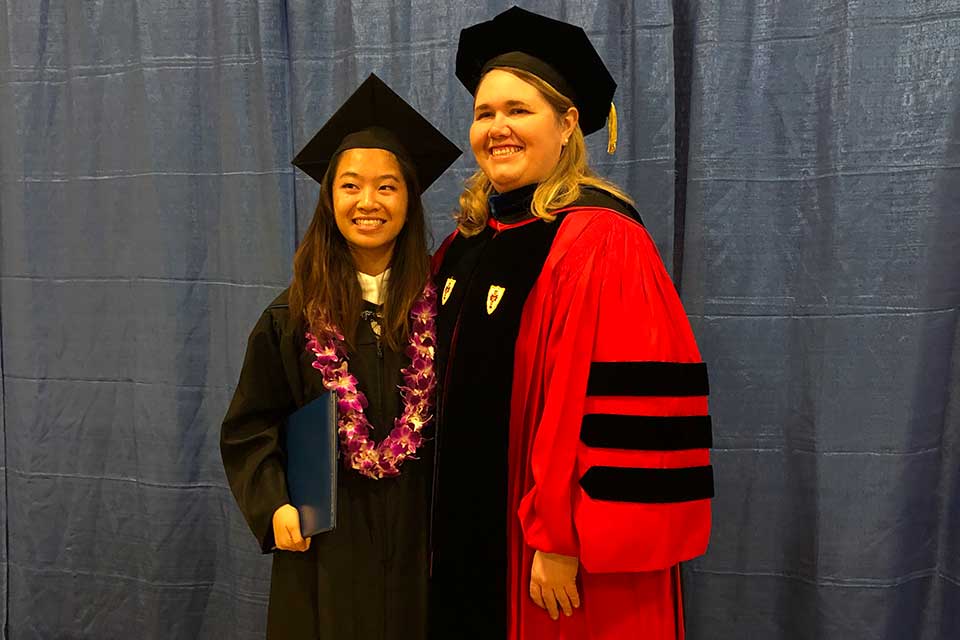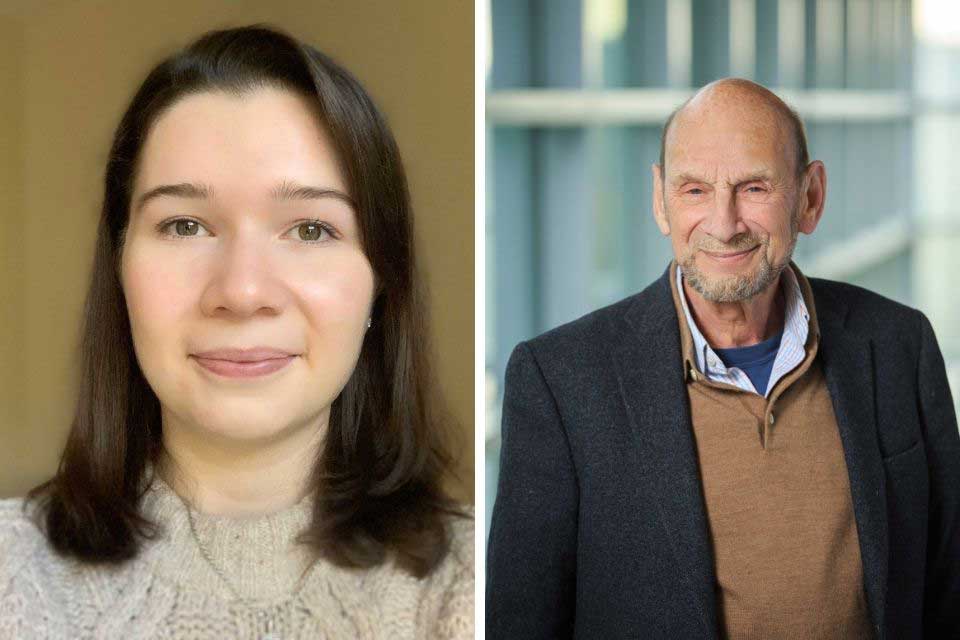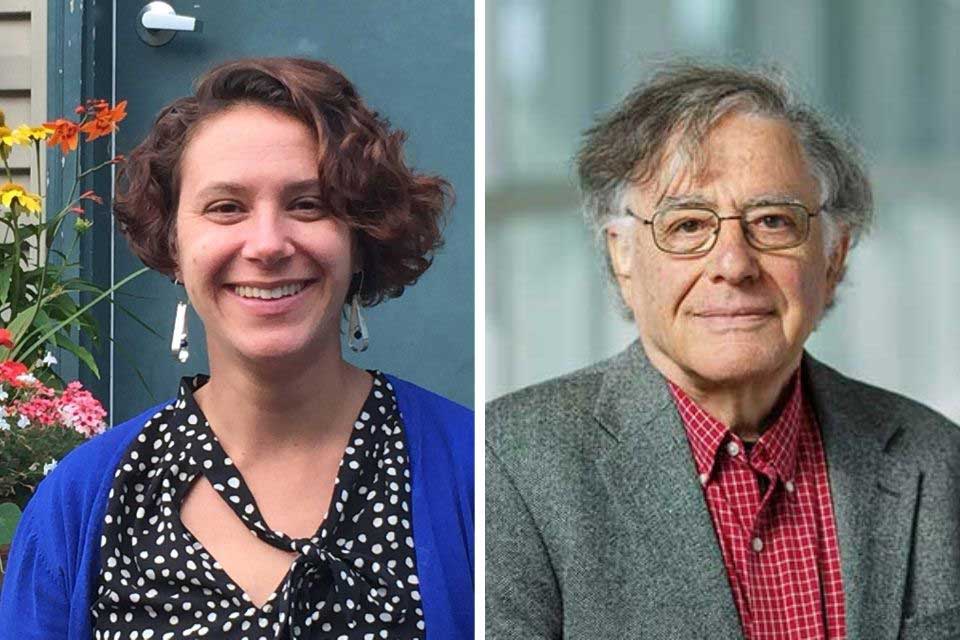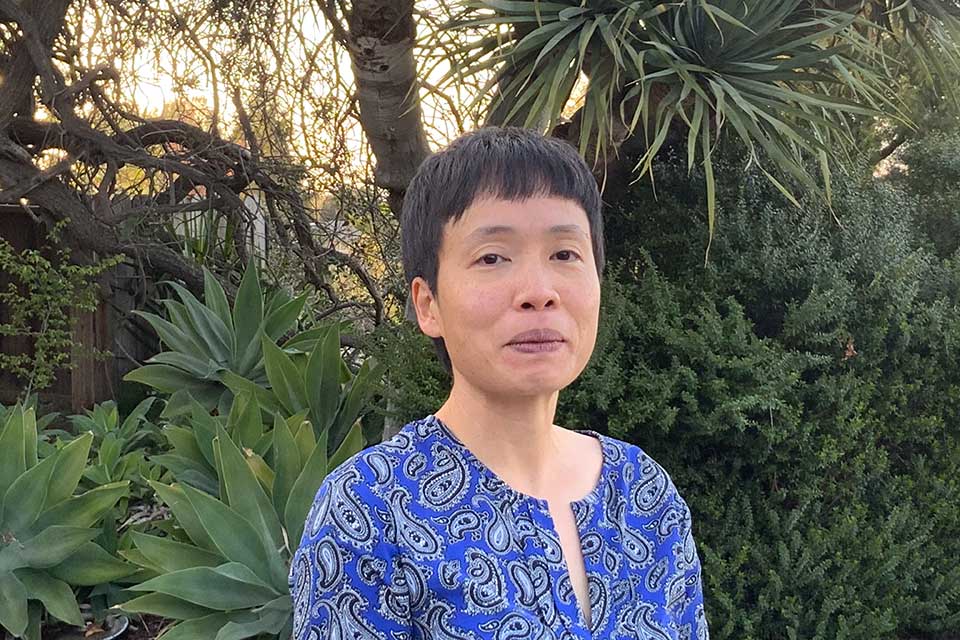Brandeis Alumni, Family and Friends
Helen Wong ’19 Is Helping Shape the Future of Archeology
Helen Wong ’19 started as a biology major at Brandeis but her instincts, and inspiration from a faculty member, set her on a new path.
Helen Wong ’19 might not be an aspiring archeologist if it weren’t for Alexandra Ratzlaff.
Soon after joining the Brandeis faculty in 2017 as a lecturer in classical studies, Ratzlaff began to bring her students to the MakerLab, where Wong, then a sophomore, was giving tutorials on 3D scanning and other digital tools that could help restore and research cultural artifacts.
Ratzlaff — an expert on Hellenistic, Roman and Byzantine periods who has directed excavations throughout the eastern Mediterranean and Israel — was impressed by Wong’s curiosity and drive.
“Helen has a very analytical mind, but she’s also very creative, and people like that are a good balance in our field,” Ratzlaff said. “I thought it would be such a waste for archeology if we didn’t reel her in.”
Learning from the Artifacts of Everyday Lives
Ratzlaff brought Wong on board as a research specialist with her Brandeis Techne Group at Boston’s Autodesk Technology Center to assist in developing new equipment and methods to analyze items from the ancient world.
She told Wong stories about her own field work, including a dig in Israel that uncovered a wine cellar dating to 1,700 BC, and encouraged Wong to get hands-on experience in the summer after her junior year at an excavation run by a fellow Classics professor near Delphi in Greece.
That experience was eye-opening. “The find that most stood out to me was a diamond-shaped loom weight carved in black steatite,” said Wong. “Loom weights are a domestic artifact. They’re very humble but I remember it so well exactly because of that.
“Archaeology at its best should pay attention not only to showy tombs and elite lives, but also to those of everyday people,” Wong said.
Charting a New Path of Discovery
By the time Wong was a senior, she’d switched her major from biology to history and classical studies. Ratzlaff, her honors thesis advisor, did more than just read her final work: she connected Wong with curators at the Harvard Museum of the Ancient Near East, who allowed Wong to examine a little-studied set of ceramic jugs from the Bronze Age in Cyprus.
Using 3D scanning and petrography, a method of geological analysis that identifies and describes rocks and minerals, Wong was able to discover the approximate locations where these vessels had been produced, information not previously known.
“Helen really is the future of our field,” said Ratzlaff. “She embodies the new young archeologist.”
Wong earned a master’s degree from Oxford and now is a first-year PhD student at the University of Pennsylvania. She said thinking about how her parents immigrated from Hong Kong to the U.S. has inspired the topic of her planned dissertation on ancient migration.
Wong says she hopes to emulate Ratzlaff’s teaching style once in front of a classroom. “She’s someone I aspire to in terms of being a guiding figure for students,” said Wong. “She’s kind, firm and fair—and these are all things I want to achieve in my future career as an educator.”
— Heather Salerno







